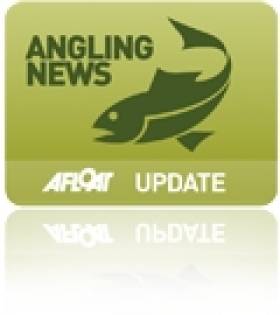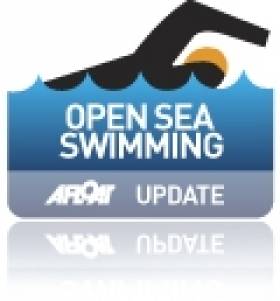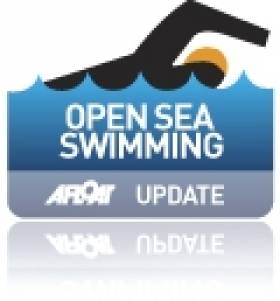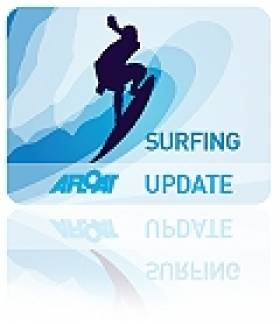Displaying items by tag: open
World Pairs Championship for Anglers This September
#ANGLING - A prize pool of more than £60,000 (€71,500) will be up for grabs at the Lakeland and Inland Waterways Ireland World Pairs Championship, coming to the border counties this September.
Described by the organisers as "a pairs match the type of which has never been seen before", the competition will run from 9-15 September at various locations in Monaghan, Leitrim, Cavan and Fermanagh.
The format of the match is based purely on total weight of the pair of anglers over the four competition days. On the off days there will be further open matches so anglers can make the most of the great fishing available in Ireland during September.
The exact sections and format of the match are yet to be disclosed, as much depends on the numbers of anglers attending - although the prize pool is guaranteed.
Entry per pair is £90 (£45 per angler) with discounts for booking through one of the official travel companies.
"You dont need to be 'venue experts' to win this match," say the organisers, "you just need to be able to catch roach and bream, and there are some massive shoals of them to be found in the lakes and rivers that the event will be staged on."
The organisers add: "Absolutely anyone can enter and you are all in with a chance of winning - while fishing in the beautiful surroundings of the Irish countryside."
For more information, entry forms and travel arrangements, visit the Talk Angling forum or contact Kevin Lockee at 07736 129 627.
Round Fastnet Swimmer Nominated Again for World Award
#OPEN SEA SWIMMING – A Cork man has been nominated as World Open Water Swimming Man of the Year 201. Stephen Redmond, from Cork, has accomplished some of the world's toughest marathon swims.
One of 1, 200 to have swum the English Channel and one of only 12 to have swum the North Channel (between NI and Scotland) - Stephen is a superstar in the sport.
{youtube}1Hw4YIdu6MY{/youtube}
In a short period this autumn Stephen added the well known Catalina Channel to his list of accomplishments soon after he became the first swimmer ever to swim around the Fastnet Rock. Going around the rock is not the 300 meters you might think. Stephen started in Baltimore, circled the Fastnet and finished in Schull.
For the second year in a row he has been nominated for this global award.
Nominations for the annual World Open Water Swimming Man of the Year were announced today by Open Water Source.An eclectic group of 12 accomplished individuals from 9 countries were selected among the millions of athletes in the fastest growing sport in the world.
Their stories, their exploits and their lifestyles are extraordinarily inspirational as they are all passionately attracted and committed to a sport inherent with risks, challenges and beauty.
These awards not necessarily for the best athlete, but are meant to honor the individual who (1) best embodies the spirit of open water swimming, (2) possesses the sense of adventure, tenacity and perseverance that open water swimmers are known for, and (3) has most positively influenced the world of open water swimming in 2011.
Dublin's Lord Mayor to Start 91st Liffey Swim
The Swim is open to competitors of all ages, abilities and nationalities, with teenagers pitting their strengths against 70 year olds and club swimmers from all over the country competing against eachother.
There is something for people of all ages to enjoy at the event, with entertainment at the finishline being provided by the Coastguard performing a simulated air-sea rescue, while Dublin Port tug boats, Shackleton and Beaufort, will fire water cannon into the air, accompanied by a colourful Dragon Boat display.
The Lord Mayor says, "the Liffey Swim is unique to Dublin. No European cities run an open swim right through their city centre. I look forward to starting the race and would like to thank Swim Ireland, Leinster Region Open Sea Committee, who do such a great job year after year. Most of all, I would like to thank the swimmers who have trained so hard for this race."
"I encourage everyone in Dublin on Saturday afternoon to follow the gruelling race along the quays and cheer on the swimmers, from the many great vantage points along the Liffey walls, bridges and boardwalks", the Lord Mayor continued."
David Farrell, Leinster Open Sea Committee commented, "We're delighted to be extending this year's race to a 2.4km event, so that it will now be finishing in the Dublin Docklands. We'd also like to gratefully acknowledge the support of Dublin City Council and Dublin Port. This year's race includes a number of Irish swimmers who have completed the gruelling English Channel swim: Julie-Ann Galloway, Lisa Howley, Ann McAdam and Eoin Gaffney."
"With it all to do are the "scratch" swimmers, Colleen Mallon and Julie-Ann Galloway in the women's race, and Shane Drumm, Daire O'Driscoll and Seamus Stacey in the men's race. They are seeded fastest and will have to pass all the swimmers who start before them if they are to win the race. They will wear a unique red hat so they can be spotted as they progress through the field", says Farrell.
MGM Boats Put a Boating Swing into the Irish Open
Leading Irish boat dealer MGM Boats Ltd is playing golf this weekend. While the Dun Laoghaire firm may not be teeingg off in Killarney, Gerry Salmon, Martin Salmon anf Joe Hill are on the course as the Irish Distributors of Sunseeeker boats, an official sponsor of the Irish Open Golf Tournament 2011.
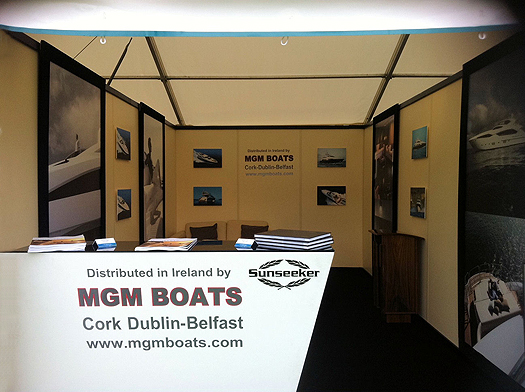
The event is held at the Killarney Golf and Fishing Club 28th to 31st July. MGM Boats Have a stand in the Tented Exhibition Area area and also have a Sunseeker XS Sport on Display. The Salmon's are in attendance for the duration of the event.
Ireland Knocked Out of World Surfing Games
Ireland joins Puerto Rico, Switzerland, Mexico and nine other countries with all surfers eliminated from the Billabong ISA World Surfing Games in Playa Venao, Panama.
Mike Young, Ireland's sole competitor, was knocked out in the opening rounds of the open longboard competition.
After five days of heats, Australia currently leads the team ratings with 19,120 points and seven surfers still left in contention, with Brazil close behind.
The World Surfing Games continue till this Sunday 3 July.



























